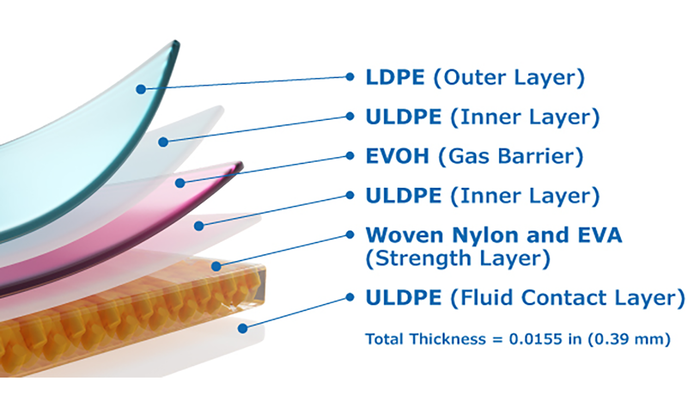A newly launched independent, nonprofit organization — the National Biomarker Development Alliance (NBDA) — will broadly engage leaders in industry, academia, patient groups, and government from across the United States. It was announced on 13 January 2013 at the National Press Club by the Research Collaboratory (RCASU) at Arizona State University (ASU). The mission of the NBDA is to address the complex and urgent challenge of creating standards needed for end-to-end, systems-based biomarker research and development (R&D). The alliance is meant to advance molecularly based precision (personalized) medicines for the future.
The NBDA is the first independent, cross-sector organization that brings together all key stakeholders for the purpose of improving the currently dismal success rate of biomarker R&D. Creating the standards and systems for successful biomarker development is complex but achievable through networks of experts who can solve problems of this scale.
“We were pleased to enable development of the NBDA,” states Rick Shangraw, chief executive officer of the Arizona State University Foundation (ASUF). “Increasingly, transformative ideas will be accomplished through new organizational constructs such as NBDA that enable the convergence of knowledge to address major societal problems.”
Biomarkers are biomolecular indicators (markers) of normal or disease-related processes that can be used to measure pharmacologic response to therapy. They are key to realizing a future in which patients will be treated based on identifying molecular changes in disease. Molecular profiles will empower physicians to select targeted therapies using molecular diagnostics rather than the current “one-size-fits-all” approach to diagnostics. They are critical to a future in which therapeutics and “companion diagnostics” go hand in hand.
But currently, too many drugs and biomarkers fail in late stages of regulatory review — a problem most explicitly evidenced by the disturbing historical lack of success for many phase-3 clinical trials in oncology. Powered by advanced genomics and other technologies, biomarker discovery has become a major focus in biomedicine. Unfortunately, despite a growing number of published biomarkers, the approval of protein biomarkers has changed little since the 1990s. Fewer than 1.0 per year have been approved by the US Food and Drug Administration (FDA) during this period, and fewer than 100 cancer biomarkers are used routinely in clinics today.
Reflecting on a study that he published in 2011 — a meta-analysis of 150,000 papers that documented thousands of biomarker discoveries — George Poste (interim chief science officer of the NBDA) explains: “A biomarker ‘discovery’ does not mean that the technical processes were robust, the findings could be independently reproduced, or that they measure a meaningful change in biology that addresses clinically meaningful questions.”
Biomarker failures begin in early discovery when deficiencies such as asking the wrong clinical question, using poor-quality biospecimens and/or data, and inadequately designing experiments can compromise subsequent development efforts.
“Reaching consensus on standards will not be easy,” said NBDA’s chief medical officer, Carolyn Compton, “but we have a lot of the information needed to achieve real progress in an area such as acquisition and stewardship of high-quality biospecimens. And we can identify critical knowledge gaps where new research is needed.”
Failure to develop and implement standards-based, end-to-end systems approaches for biomarker development has essentially stalled the advancement of the diagnostics industry, especially impeding smaller biotechnology companies that focus on molecular diagnostics. The explosion of genomics-based assays and other nonregulated laboratory-developed tests (LDTs) discourages such companies from pursuing more rigorous, uncertain, and expensive FDA biomarker/diagnostic approval pathways. Undervaluation of biomarkers and reimbursement ambiguities further discourages investment in the field.
“The NBDA is a potentially transformative approach to not just identifying and advancing successful biomarkers,” stated Mara Aspinall, CEO of Ventana Medical Systems and cofounder of DxInsights, “but it will also serve to energize and support development of the diagnostics industry.”
The NBDA has spent the past 18 months engaged with a large number of experts in efforts to understand how and why biomarkers fail — and the organization is well under way to create solutions. A successful NBDA promises to reduce health-care costs by accelerating drug development, empowering the diagnostics industry, and improving patient engagement and outcomes. Continuing to tolerate the failure of biomarkers means that the promise of precision medicine will never materialize for patients, and that would be tragic and costly.
Author Details
Anna D. Barker is cofounder, president, and director of the National Biomarker Development Alliance (NBDA), 1475 North Scottsdale Road, Suite 361; 1-480-884-1781; [email protected]; www.nbda-network.org (website will be live July 1, 2014). She is also codirector of Complex Adaptive Systems (CAS) and a professor in the School of Life Sciences at Arizona State University and former deputy director of the National Cancer Institute. This article is adapted from a January 2014 press release announcing the NBDA’s launch.







